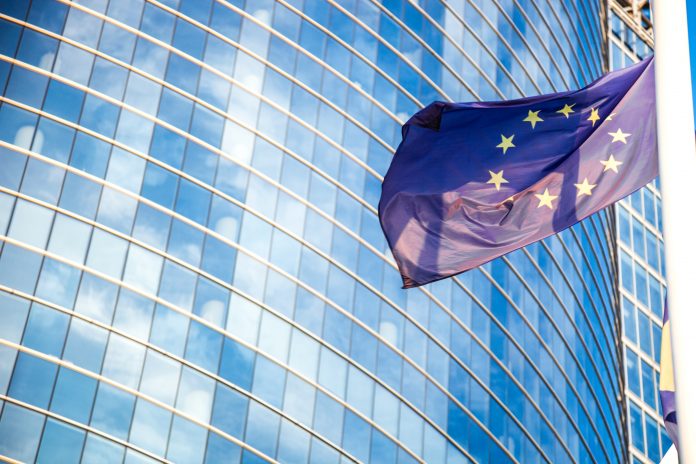Prof Dr Kyriakos Kouveliotis, Provost and Chief Academic Officer at Berlin School of Business and Innovation outlines the challenges and perspectives around European integration and the single market
The ideas of the “United Europe” and the “Single Market” have always been and continue to be a revolutionary and innovative vision, especially if we take into consideration the first moves towards the development of European integration mechanisms that took place into the turmoil that existed in the European continent just after the end of the Second World War.
In essence, when the six founding members of the European Coal and Steel Community created this Organization in 1951, they actually merged their industries of war. Six years ago, they were enemies and took part in the most catastrophic war the human race has ever encountered.
However, gradually and with the creation of the European Economic Community (EEC), the Euratom – the European Atomic Energy Community, the European Commission and the European Union (EU) at the end, huge milestones regarding integration have been achieved: the free movement of people, capital and goods, the harmonisation of legislation, all big infrastructure projects to name of few.
Above all stands, of course, peace and security that European citizens have enjoyed ever since.
Following this reference, though, the EU is a victim of its success. All these great achievements today are to be taken for granted. It is very difficult for young Europeans to imagine the situations and living conditions their grandparents and great-great-grandparents encountered in the previous century. Even the Cold War sounds remote today.
Challenges for European integration & the Single Market
The last 15 years were full of global challenges for European integration and the Single Market. Especially the period 2010-2014 was a highly eventful one, with the implementation of the new constitutional framework established by the Treaty of Lisbon, the European elections, the affirmation of the European Council’s role as a crisis-management institution, the formation of the new European Commission, the sovereign debt crisis, the Arab Spring, the conflict in Syria and the migrant crisis.
In addition, we have experienced the biggest challenges recently: the COVID-19 Pandemic, the global logistics crisis, Ukraine and alarming signals from the banking sector.
The aftermath of the global economic crisis in Europe
The EU’s capacity for adaptation and action was tested with each successive event. As a result, the dynamism and the very nature of the integration process within the EU were called into question. (1) If we also consider the aftermath of the global economic crisis in Europe, which in some sectors, we still experience, the whole perspective looked highly problematic.
In this framework, European Integration and its Single Market have turned from a revolutionary, innovative, and, why not, radical movement to a regime with symptoms of a decline. Inevitably, it has lost a huge percentage of its dynamism, popularity and public acceptance.
Additionally, its inadequacies, eurozone problems and the austerity measures that are imposed on Member States gave impetus to enormous criticism. In this framework, many Eurosceptic and anti-systemic movements have been developed. It is very easy for them to find appeal and support the European citizens, especially from the South European Member States that have suffered from the hard-economic policies they feel are dictated by Brussels and Germany.
Nevertheless, it was German Liverpool football club manager Jürgen Klopp that has mentioned something very true: “The EU is not perfect, was not perfect, is not perfect, will not be perfect. But it is the best idea we have had so far.” Sometimes you do not need an expert to see the reality.
The Single Market made all goods accessible and, at the same time, facilitated commerce. It has enhanced competitiveness and provided a variety of choices. On the other hand, it strengthened the market value of the powerful Member States and their economies of scale.
EU: Single Market challenges ahead
The EU and its Single Market must face in the near future, but also today, seven important challenges: immigration, energy, internal and external security, banking and fiscal unification, ethnicism, ageing and future enlargement.
The only viable solution as a strategic plan but also as a remedy to these challenges is a new route towards the deepening process, not just a new enlargement that will further strengthen Eurosceptic voices very shortly. (2)
For years, the EU has tried to widen and deepen in parallel. But since the Treaty of Maastricht took effect in 1992, the deepening process has stumbled, puttering ahead with the Amsterdam and Nice treaties but making little real progress.
The EU will, therefore, have to quickly work out the tensions between wider enlargement and deeper integration. Simply put, the enlarged EU has to answer the question of whether it can be a political union after this and subsequent enlargements. (3)
However, the EU has to solve its internal problems and regain momentum; otherwise, if new members join in, there will be even more problems. More members mean more opinions which inevitably means more disagreements. Another perspective argues that the European economic crisis will spur the development of new governance mechanisms that will ultimately deepen EU integration.
In any case, the EU definitely needs reform towards integration. The Commission could initiate a new intergovernmental conference as in the past, which, if productive, will move things forward. (4)
Let us conclude that the Union is at a crossroads, as is the whole world. We have entered the so-called “De- globalisation” era. So maybe the solution is a view to the past and to return to the original values and rationale of the Single Market. In other words, we take two steps back to move one ahead.
References
- https://www.cvce.eu/en/education/unit-content/-/unit/02bb76df-d066-4c08- a58a-d4686a3e68ff/4941fe5b-104e-4f4a-993d-b7c5fe78f687
- http://www.ert.gr/eidiseis/diethni/evropi/k-koyveliotis-i-emvathynsi-kai-ochi-i- dieyrynsi-einai-i-lysi-gia-tin-ee-audio/
- https://www.brookings.edu/articles/the-european-paradox-widening-and-
deepening-in-the-european-union/ - https://www.larazon.es/internacional/la-union-europea-asaltada-por-el- euroescepticismo-CN18512909






























